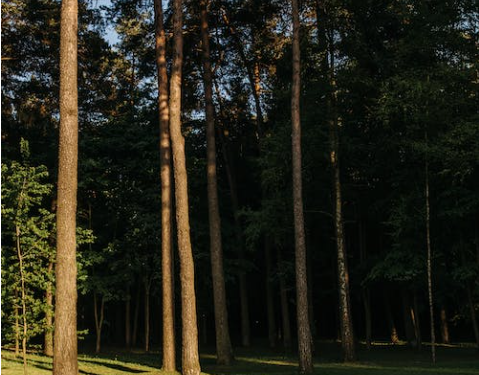Introduction
Traditional festivals and celebrations serve as vibrant expressions of cultural heritage, reflecting the values, beliefs, and customs of communities around the world. In this article, we delve into the significance of these time-honored events and explore the rich tapestry of traditions that define them.
Importance of Traditional Festivals
Traditional festivals play a crucial role in preserving cultural identity and fostering a sense of belonging among communities. These annual gatherings serve as occasions for people to come together, celebrate shared heritage, and pass down cherished customs to future generations.
Cultural Significance
Historical Roots
Many traditional festivals have deep historical roots, dating back centuries to ancient civilizations and religious practices. These events often commemorate significant milestones, seasonal changes, or religious observations, offering insights into the cultural evolution of societies over time.
Symbolism and Rituals
Central to traditional festivals are the symbolic rituals and practices that imbue them with meaning and significance. From lighting candles to performing traditional dances, these rituals serve to honor ancestors, invoke blessings, and strengthen communal bonds.
Diversity of Festivals Worldwide
Seasonal Celebrations
Throughout the year, communities around the world mark the changing seasons with a myriad of festivals and celebrations. Whether heralding the arrival of spring with colorful parades or giving thanks for the harvest bounty, seasonal festivals reflect the close relationship between humans and nature.
Religious Festivals
Religion plays a significant role in shaping the cultural landscape of many societies, giving rise to a multitude of religious festivals and observances. These events provide opportunities for worship, reflection, and spiritual renewal, uniting believers in shared faith and devotion.
Harvest Festivals
In agrarian societies, harvest festivals hold special significance as occasions to give thanks for the abundance of the land. These celebrations are characterized by feasting, music, and dance, as communities gather to celebrate the fruits of their labor and express gratitude for nature’s bounty.
Impact of Globalization
Preservation Efforts
In an increasingly globalized world, traditional festivals face the dual challenges of cultural homogenization and erosion. However, there are concerted efforts by cultural preservation organizations and local communities to safeguard these intangible cultural heritage assets for future generations.
Commercialization Challenges
The growing influence of commercial interests poses a threat to the authenticity and integrity of traditional festivals. As these events attract tourists and generate revenue, there is a risk of diluting their cultural significance and turning them into mere spectacles for entertainment.
Experiencing Traditional Festivals
Immersive Cultural Experiences
Participating in traditional festivals offers travelers a unique opportunity to immerse themselves in the local culture and forge meaningful connections with the community. Whether joining in religious processions, sampling traditional cuisine, or learning traditional crafts, these experiences provide insights into the heart and soul of a destination.
Community Participation
At the heart of traditional festivals is community participation, as people come together to celebrate shared heritage and values. Whether volunteering for festival preparations, performing in cultural performances, or simply enjoying the festivities with friends and family, everyone has a role to play in keeping these traditions alive.
Popular Festivals Around the World
Chinese New Year
Marking the beginning of the lunar new year, Chinese New Year is celebrated with fireworks, dragon dances, and family gatherings. It is a time for reunion, feasting, and welcoming good fortune in the year ahead.
Diwali
Known as the Festival of Lights, Diwali is one of the most important Hindu festivals, symbolizing the victory of light over darkness and good over evil. Homes and streets are illuminated with oil lamps, and families gather to share sweets, exchange gifts, and offer prayers to the goddess Lakshmi.
Oktoberfest
Originating in Munich, Germany, Oktoberfest is a world-famous beer festival that attracts millions of visitors each year. From traditional Bavarian music and dance to hearty German cuisine and, of course, copious amounts of beer, Oktoberfest is a celebration of Bavarian culture and hospitality.
Carnival
Carnival is a vibrant and colorful festival celebrated in many countries around the world, with notable festivities in Brazil, Trinidad and Tobago, and Venice, Italy. Featuring elaborate costumes, parades, and street parties, Carnival is a time of revelry and indulgence before the solemn season of Lent.
Benefits of Participating in Traditional Festivals
Cultural Understanding
Participating in traditional festivals fosters a deeper understanding and appreciation of different cultures, traditions, and ways of life. By experiencing firsthand the rituals, music, and cuisine of a community, travelers gain insights into the values, beliefs, and aspirations that shape its identity.
Social Cohesion
Traditional festivals serve as catalysts for social cohesion, bringing together people from diverse backgrounds and fostering a sense of unity and belonging. Whether celebrating with neighbors, friends, or strangers, the shared experience of a festival creates bonds that transcend social barriers and foster goodwill.
Personal Enrichment
Beyond the cultural and social benefits, participating in traditional festivals offers individuals a sense of personal enrichment and fulfillment. Whether learning a new dance, mastering a traditional craft, or simply savoring the flavors of a regional cuisine, these experiences nourish the mind, body, and soul.
Conclusion
Traditional festivals and celebrations are more than just occasions for merrymaking; they are living expressions of cultural heritage and identity. By experiencing these time-honored events firsthand, travelers not only gain insights into the diversity of human culture but also forge meaningful connections with the communities that preserve these cherished traditions.

FAQs
- How do traditional festivals contribute to cultural preservation?
- What role do traditional festivals play in promoting social cohesion?
- How can travelers respectfully participate in traditional festivals?
- Are traditional festivals open to tourists, or are they primarily community events?
- How can communities balance the preservation of tradition with the pressures of modernization?









